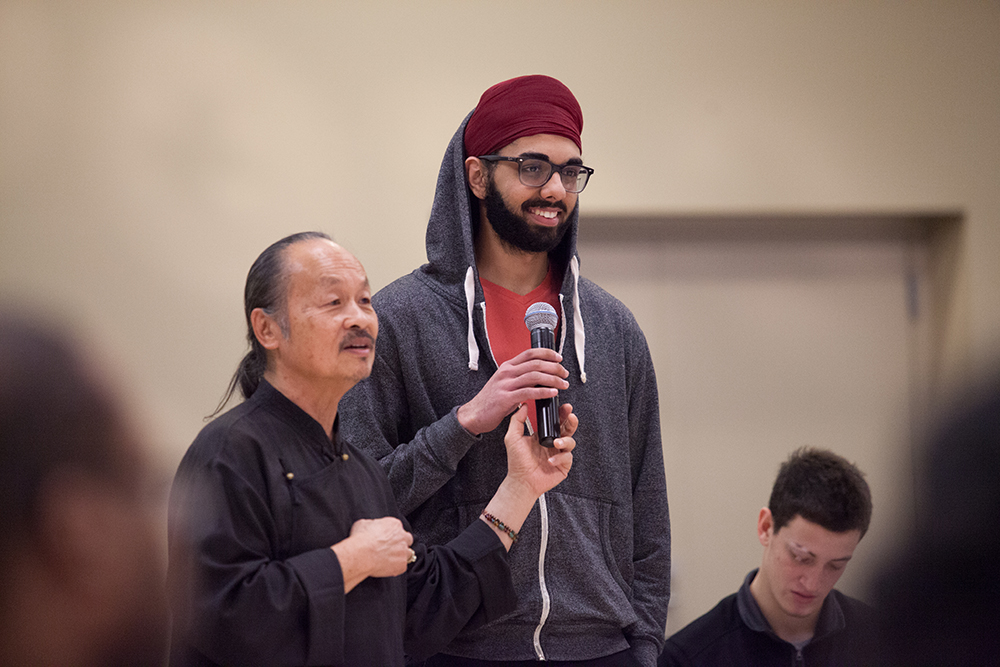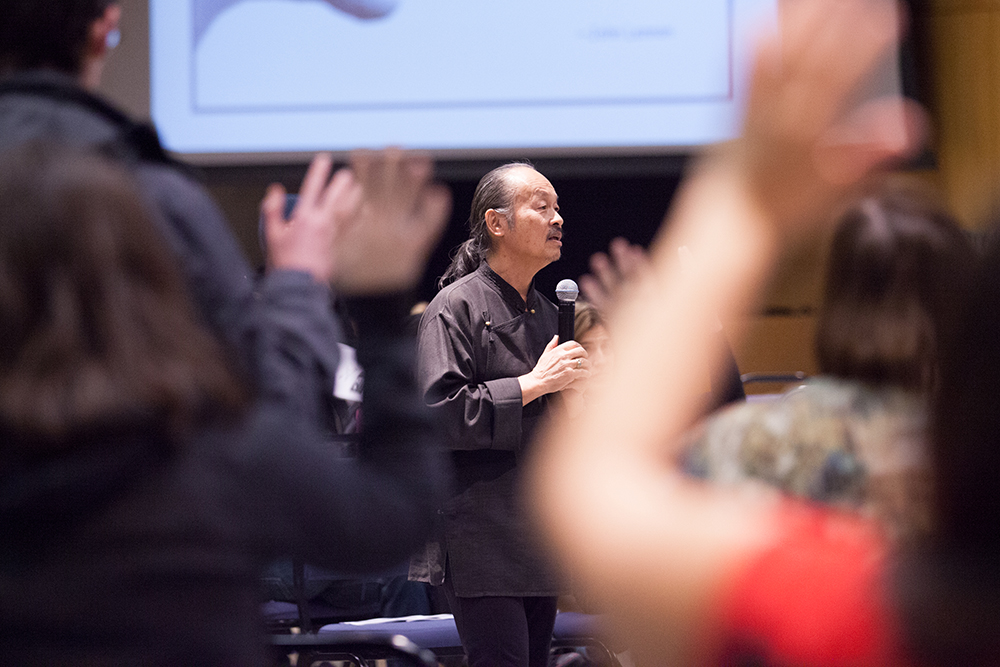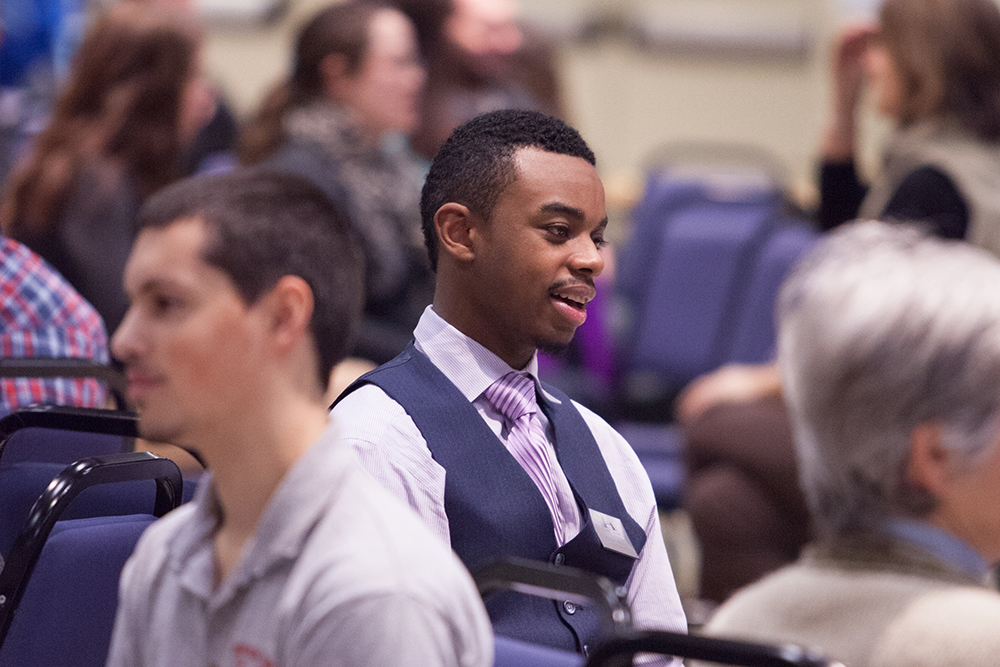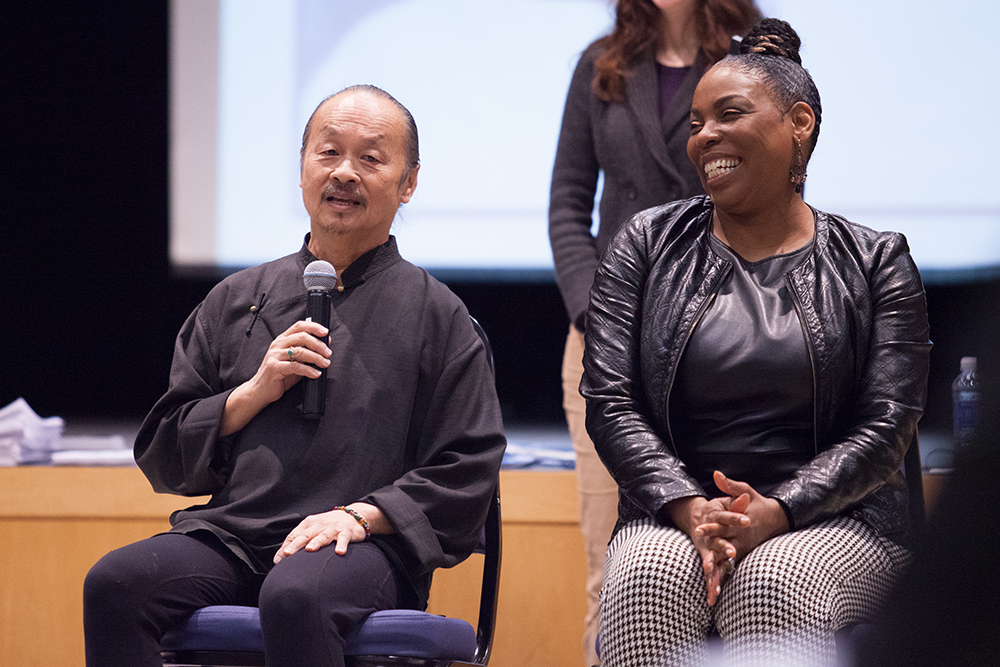Clark College honors Dr. King's legacy with diversity educator Lee Mun Wah
A young, African-American student who feels like he doesn’t fit in at college. A professor who spent years feeling isolated because of her race. A quiet young man constantly bullied for being different. A mother struggling to learn how to teach her sons how to deal with racism she never encountered in her home country. An Indian man who regularly faces ignorance about his culture. These were just some of the stories that became part of “The Unfinished Conversation,” a daylong series of events led by diversity educator Lee Mun Wah during Clark College’s celebration of Martin Luther King Jr. Day, held on January 22.
“The Unfinished Conversation” comprised an employee diversity training in the morning; a lunchtime keynote speech followed by an open dialog with students; and an evening screening of If These Halls Could Talk, Lee’s documentary film about college students tackling race and racism. True to the day’s theme, Lee—a nationally recognized poet, documentary filmmaker, and diversity trainer—spent much of his time encouraging conversation between different members of the college community. The discussion was at times both revealing and emotional—more than once, participants broke into tears as they related personal experiences of prejudice and isolation.
Lee said this sense of alienation can keep students of color from achieving their educational goals. “When I was filming If These Halls Could Talk, three-quarters of the students of color in the group were thinking about dropping out,” he said. “And I picked those students randomly!”
Lee urged his listeners to make a regular practice of seeking out and socializing with people different from themselves. “Walk into your lunch room and see who is eating in groups, who is eating alone,” he said. “Dr. King was wrong when he said that the most segregated hour of the week is 11:00 on Sunday–it’s lunchtime.”
Ezekiel Wells, a Clark student who works as a Peer Mentor at the college, said he appreciated that Lee invited him to tell the more than 80 Clark College employees who gathered for the morning session about what it was like to attend Clark as a young African-American male. “He was fearless,” Wells said. “He was willing to dig deep and talk about things people don’t want to talk about.”
Psychology and Early Childhood Education professor Debi Jenkins agreed. “I found his activities helpful in encouraging critical thought and action regarding power, privilege, and inequity with a goal of building a sense of community,” she said, noting that colleagues later told her they were moved by her emotional description of the loneliness she felt during the time when she was the only African-American female tenured faculty member at Clark.
For nineteen-year-old Jacob Lein, the day proved unexpectedly affecting. He happened to be walking through Gaiser Student Center when Lee began his keynote speech and stayed to listen. But when Lee asked him to tell his story to the group, he found himself describing the pain of being bullied in high school for being tall, skinny, and affected by Attention Deficit Hyperactivity Disorder—and then amazed when the room burst into supportive applause. The surprises weren’t over for Lein: When Lee broke the audience into pairs to more intimately discuss their experiences with being different, Lein found himself sharing stories with Clark College President Bob Knight.

Lee Mun Wah encourages a student during the open dialog that followed his keynote speech. He urged the group to really listen and ask questions.
“I had no idea he was the president,” said Lein, who is in his first quarter at Clark with the goal of becoming an American Sign Language interpreter. “It was a great experience.”
President Knight said he appreciated the chance to get to know Lein. “I thought the session was very good and made me reflect back on a time in my life where I was harassed and how I dealt with it,” he said. “It also allowed me to get to know a student that I had never met before and to learn more about him and the obstacles he has faced in life and at Clark College. It made me want to know the student better. We have exchanged phone numbers and plan to get together for lunch in the very near future.”
Because the conversation still isn’t finished—but, as Lee Mun Wah clearly demonstrated, it helps to keep talking.
Interested in continuing the conversation? The Teaching and Learning Center is hosting two employee trainings by the Office of Diversity and Equity in February: “Cultural Competency” (February 6, 12 pm – 1 pm, GHL 213) and “Power, Privilege and Inequality at Clark College” (February 26, 10 am – 11 am, GHL 205). Additionally, Professor Debi Jenkins discusses “Support for a Diverse Workforce through Communities of Practice” during her Faculty Speaker Series presentation, which is open to the public (February 13, 4 pm – 5 pm, GHL 213). Or visit the Clark 24/7 calendar and search for events tagged with the keyword “diversity.”
Photos: Clark College/Jenny Shadley
More photos of the event can be found on our Flickr page.















